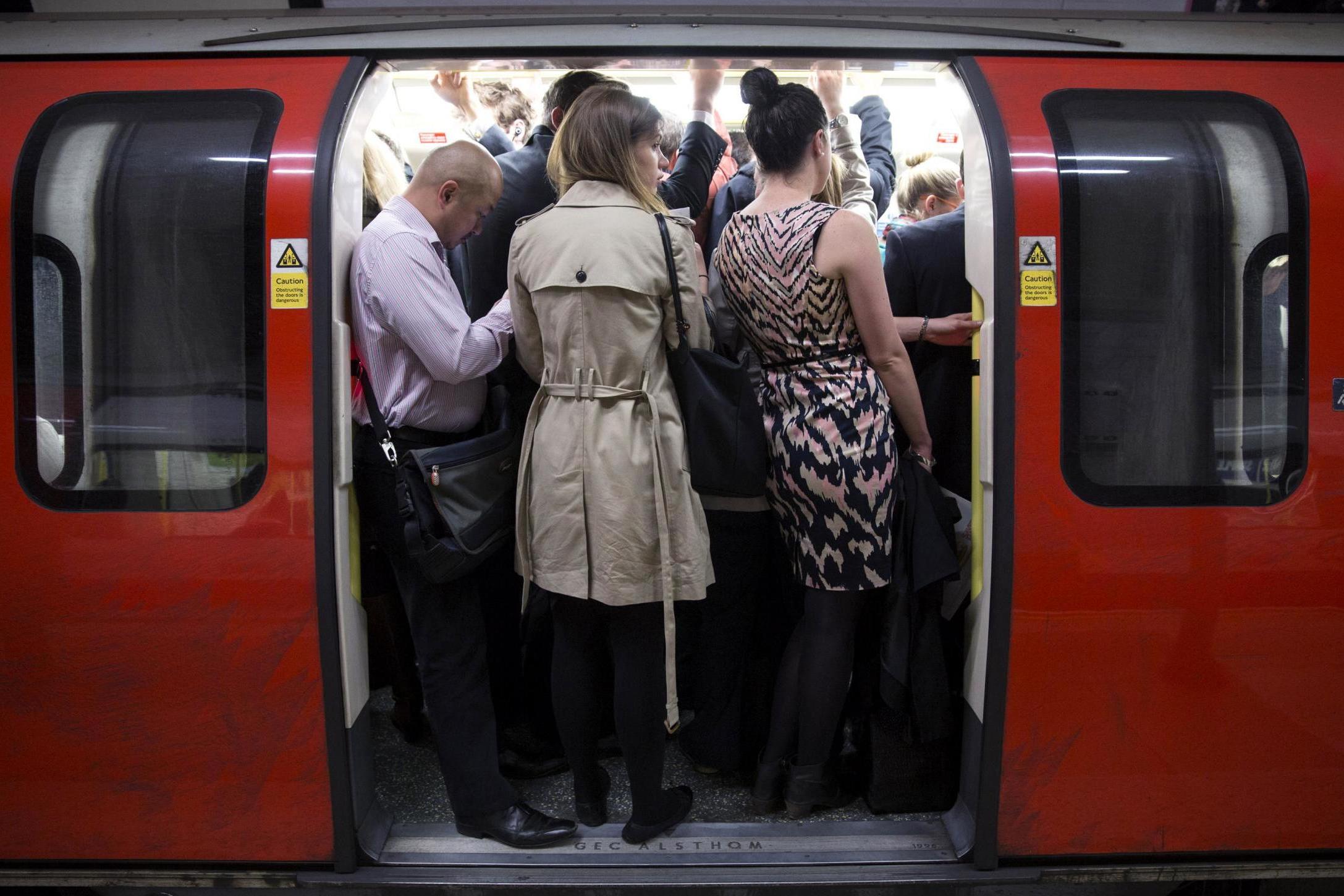Boris Johnson has told Sadiq Khan that introducing driverless trains on the Tube should be a "condition" of a future bail-out of Transport for London. But the reality is that you won't be travelling on one anytime soon, no matter how this political row is resolved.
Driverless trains have long been a hobby horse for London's Conservatives, who see them as a way of bypassing unionised Tube workers. Boris Johnson said he would bring them in when he was Mayor, and didn't. Go back a little and you can find an Evening Standard headline from October 1977 boasting that there will be "Driverless Tubes in service by 1990". There weren't.
The background to the prime minister's latest demand is important to understand what's going on.
TfL has been hit particularly badly by the coronavirus pandemic because unlike transport in the rest of the country, it receives no operating subsidy from the government. Instead, everything is paid for by fare revenue – which has collapsed as people are told to stay off the Tube.
So a bailout is inevitable and TfL needs a cash injection if transport in the capital isn't simply going to grind to complete halt. This is the position in which the prime minister has made his demand.
But the main problem is you can't just buy driverless trains and start running them without drivers – the signalling on the lines has to be upgraded to accommodate them, a lengthy and expensive process. For safety reasons, platform-edge doors also have to be fitted as currently exist on part of the Jubilee Line.
There was previously a plan to upgrade one of the capital's Tube lines, the Piccadilly Line, that would have made new trains capable of running without a driver – though no decision was taken on whether they would actually do so, for various reasons I'll explain in a moment.
But the Piccadilly upgrade plan was shelved in 2018 because of austerity measures at TfL. The transport authority used to receive government funding like trains and buses in the rest of the country, but this so-called "block grant" was abolished by George Osborne when he was chancellor.
Since then it has had to cut back and sell off its assets, or increase fares. Further delays to the Crossrail project have also cost TfL money because it isn't earning the fare revenue it was expecting from the new service.
In February just before the start of the coronavirus pandemic TfL reiterated that the Piccadilly Line upgrade could simply not happen without central government funding – there is no money for it. The Treasury rejected TfL demands for cash to go ahead with the upgrade in the September spending review. So if Boris Johnson wants this line upgrade he will have to pay for it.
When the upgrade was cancelled in 2018 it was scheduled to be completed in 2025, if everything ran to schedule. It's been two years since then, so if the upgrade was reinstated today you'd probably be looking at 2027 at the earliest for the first section of driverless-capable line. That's roughly two more mayoral terms away, if things are not delayed.
I say "section" of line, because it would not have covered the part of the Piccadilly line where tracks are shared with the Metropolitan Line, between Rayner's Lane and Uxbridge, meaning a driver would still be required for trains to pass through here. That would significantly reduce the usefulness of running driverless for part of the journey because a driver would still be needed for every train. So even if the upgrade is eventually delivered, driverless might not even make sense from an operational perspective.
Boris Johnson is essentially calling on Sadiq Khan to do something that is only really within the power of Boris Johnson, and then only with a sustained long-term investment to deliver a very small part of what he's asking for, with dubious advantages. Until he decides to stop he can basically accuse the mayor of stalling. Conveniently, there is a London Mayoral election next year, so no prizes for guessing how long this issue will take to sort out.
The prime minister's comments look like an attempt to move the debate onto whether the Mayor is standing in the way of progress at the behest of trade unions. Of course, it's not so simple – but it's difficult to explain why.


Join our commenting forum
Join thought-provoking conversations, follow other Independent readers and see their replies
2Comments